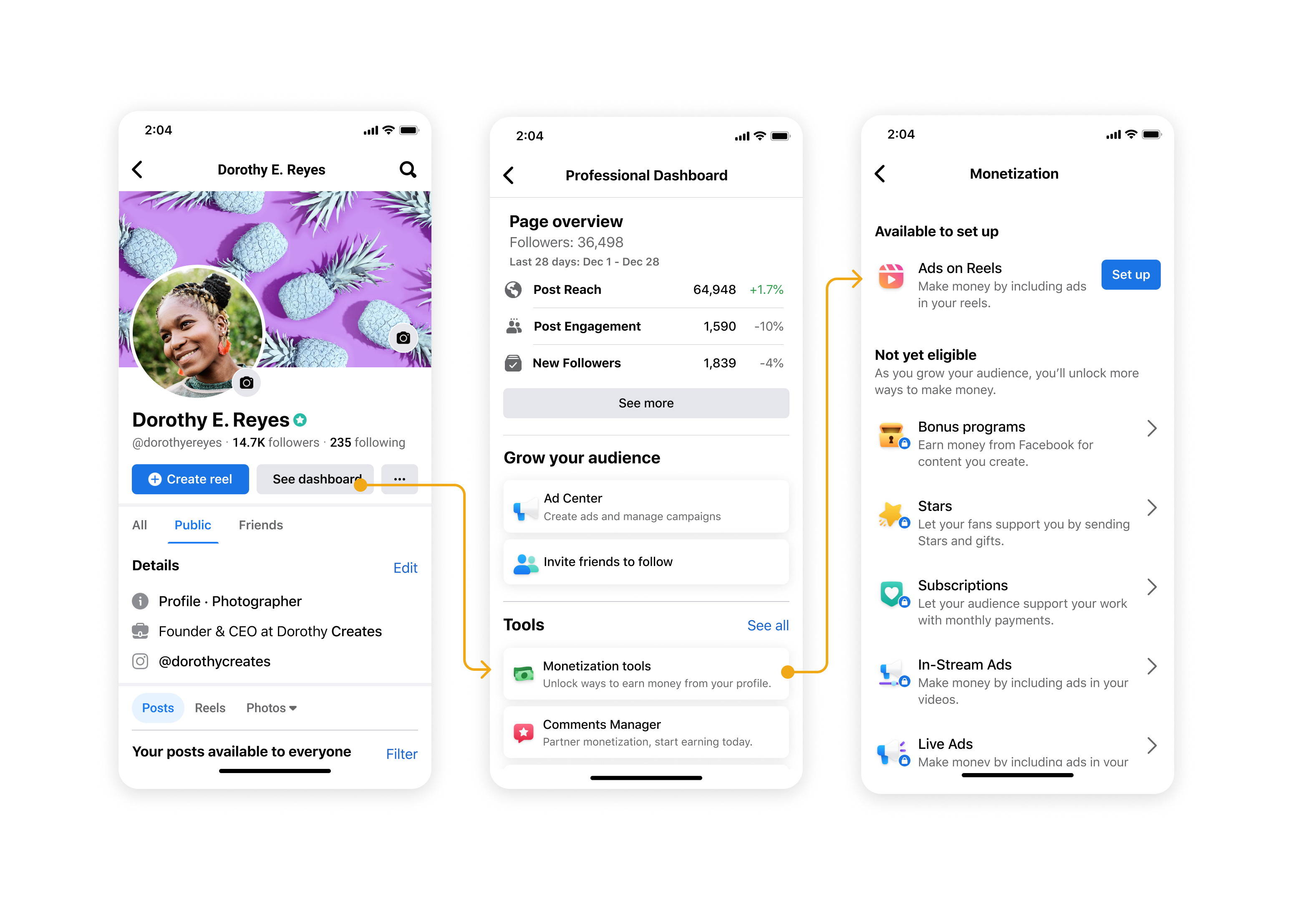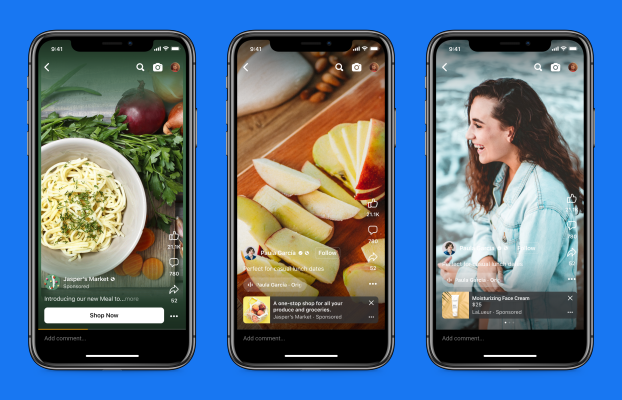Meta is testing a new payout model for its Ads on Reels monetization program that pays creators based on the performance of their public Reels, not the earnings of ads on their Reels, the company announced on Tuesday. The tech giant also announced that it’s expanding the Ads on Reels monetization program on Facebook to more creators and will start testing the program on Instagram in the coming weeks.
The company began testing Ads on Facebook Reels last year as a way for creators to earn money on their Reels. Meta is now inviting thousands more creators to join the program, including many creators who previously participated in the Reels Play bonus program on Facebook, which was recently shut down.
Payouts are determined by the number of plays, which means that the better a creator’s Reel performs, the more the creator can earn. Over time, Meta may look at other factors when determining payouts, the company says.
“We’re learning through our tests that payouts tied to performance are better at balancing the needs of everyone,” Meta wrote in a blog post. “Many variables outside of creators’ control have traditionally influenced their ad earnings, such as how many ads have already been shown to the person viewing their content or whether there’s a relevant ad to deliver that viewer. With a performance-based model, creators can focus on the content that’s resonating with their audiences and helping them grow; advertisers get access to more ad inventory to reach more people; and people get a more consistent viewing experience with more relevant ads.”
All creators who are invited to participate in the program will automatically be added to the new payout model. Creators who were already part of the program will be transitioned to the new payout model in the coming weeks.

Image Credits: Meta
To be eligible for an invite for the program on Facebook, creators must live in one of 52 countries and meet minimum requirements, such as being at least 18 years of age and passing Facebook’s Partner Monetization Policies and Content Monetization Policies. Once a creator is added to the program they must complete the onboarding process, which includes accepting the terms of use and providing payout details. From there, they just need to create engaging Reels to start earning.
Meta notes that you can check if you’re part of the program on Facebook by visiting the Professional Dashboard and navigating to the Monetization Tools section. If you are invited, you should see “Ads on Reels” and you can select “Set up” to begin onboarding.
As for the program’s launch on Instagram, Meta says it will begin testing Ads on Instagram Reels with a similar performance-based payout model among a small group of creators and advertisers in select markets in the coming weeks.
“We’re still early in our work with Ads on Reels, and we’ll continue to monitor these tests closely as we work toward the best solution for creators, advertisers and our apps broadly,” the company wrote in the announcement post.
When Meta decided to end the Reels Play bonus program, it appeared that the company was pulling back from paying creators based on the popularity of their short videos. However, the revamped performance-based payout model for the Ads on Reels program indicates that Meta is still focused on rewarding creators who are creating engaging content, while also bringing in ad money.
Given that short video is one of the most popular formats on social media today, it’s no surprise that Meta is focus on ad revenue-sharing models when it comes to rewarding creators. Meta isn’t the only company that is looking to prioritize ad revenue-sharing models as opposed to creator funds, as both Snapchat and YouTube Shorts have moved to ad revenue-sharing models.
In addition, Meta announced today that it plans to start testing a performance-based payout model for In-Stream ads on Facebook with a small group of creators, noting that it wants to support creators making all types of content.
